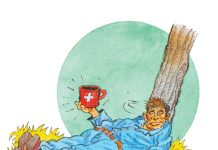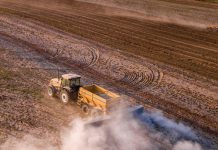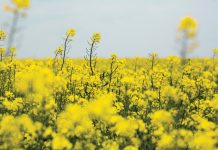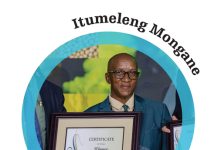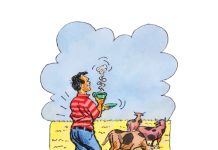 Phillip (Flip) Manoto (46) is the new Grain SA/Absa/John Deere Financial New Era Commercial Farmer of the Year. He received his award on 21 September at the Day of Celebration, Grain SA’s event where farmers who form part of the farmer development programme are honoured for their hard work.
Phillip (Flip) Manoto (46) is the new Grain SA/Absa/John Deere Financial New Era Commercial Farmer of the Year. He received his award on 21 September at the Day of Celebration, Grain SA’s event where farmers who form part of the farmer development programme are honoured for their hard work.
After completing his school education, Flip enrolled at Klerksdorp Technical College to obtain his N1 to N4 in electrical engineering. He was, however, never employed as an electrician as his desire to farm was just too big. ‘Farming has been part of my life since I was a small boy. There is nothing else in my blood but agriculture.’
In 2001 Flip joined his father, Labius, on the farm and the two have been part of the Grain SA family since 2002. He attended study group meetings and farmers days with his father, but only became a member when he started taking over the farming operation. The father and son team’s successful partnership on communal land prompted them to buy a farm together in 2005 with a loan from the Land Bank. They have paid off the farm and are now proud owners of the title deed. Although Flip has taken over the duties on the farm as Labius is getting older, his father remains a mentor and role model to him.
His business sense, hands-on approach and vision have been key in his growth as a farmer. In a video about his farming operation shown at the Day of Celebration, Flip said that he had great appreciation for Grain SA’s organisational support and information on grain production and marketing.
FLIP’S STORY
Where did your passion for agriculture originate?
My passion for agriculture was ignited while I was still a young boy tending to my father’s cattle after school and during vacations. When I was a bit older, my father taught me how to drive a tractor so that I could help him when it was time to plough and plant. Farming flows through my veins!
What are your dreams for the future?
I dream of growing my farming operation and increasing my Bonsmara herd. I want to convert some lands to plant pastures for the cattle. One day, I would also like to have a feedlot.
How have your farming practices developed over the years?
When I started farming, I was in survival mode – just making enough to survive until the next season. By looking at what commercial producers were doing and following their example when I started farming on my own land, I have become a successful farmer in my own right.
What are some of the challenges you have had to face?
The drought in North West had a huge impact on our production and the farm’s profitability, but since the 2019/2020 season things started going better. We then produced more than 700 tons of maize and nearly 400 tons of sunflower. Financing also remain a challenge.
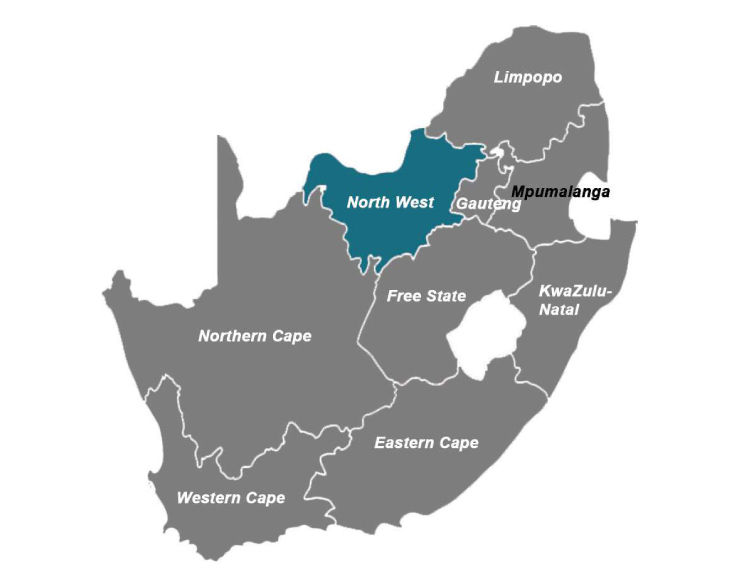
FARM FACTS
Farm: Lusthof
Nearest town: Lichtenburg
Region: North West
Size: 550 ha. He is also leasing 36 ha of communal land from people in the Lombaardslaagte village, where crops are planted
Type: Mixed – crops (maize, sunflower and dry beans) and livestock (150 cattle)
Other: Part of the Schoeman Group’s Zamukele dry bean project – a project aimed at establishing developing dry bean farmers as commercial farmers
GRAIN SA’S CONTRIBUTION
- Flip is a member of the Brooks study group at Mooifontein
- In 2017, the father and son team became members of the 1 500 Ton Club
- Flip became a member of Grain SA in 2016
Training courses completed:
- Basic engine repair
- Farming for profit
- High application tractor maintenance
- Tractor and farm implement maintenance
A mentor’s view:
Du Toit van der Westhuizen, regional development manager at the Lichtenburg office, has seen Flip develop from a struggling farmer to a successful commercial producer. To him Flip is a farmer who can function independently without someone ‘peeping over his shoulder’.
A word of thanks to the Oil and Protein Seeds Development Trust (OPDT) and Oil Seeds Advisory Committee (OAC) who have been involved in the Grain SA Farmer Development Programme since its inception. Their sponsorship makes it possible for information and advisory services to be provided to the developing agriculture sector through articles in the Pula Imvula and through training courses.




